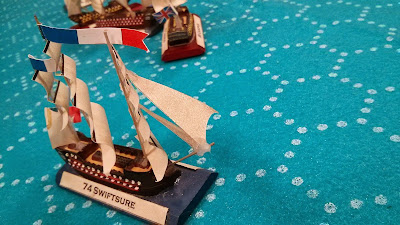Tldr; to instill wonder, roleplaying, and fear into current Ravenloft game I'm hiding most rolls and mechanics from players. Also, secretly tracking their hit-points.
For awhile, 5+years, my game mastering has leaned towards
"players' make the rolls" and
"DM rolls in the open", don't necessarily hide monster hp, etc. Some of the game systems I've been interested in supported that, and it was kind of a "thing" in the blogo. The DM rolls in open was to combat/prove no DM fudging and to push
"game with consequences" over
"railroad with same ending no matter what happens". Player's making rolls was a "fun" thing. Rolling dice is fun, keep players engaged/active at the table. Player's should have agency (not sure how much rolling own dice provides that). One system, or several, or houserule (I forget) even had players making defense/save rolls vs static monster/trap attacks.
For similar awhile, I've been largely dissatisfied with my DMing and games, jumping from one to the nest. All seem to devolve into mechanics and spending majority of game time in combat . I've never been supreme roleplayer. Still I remember, DMing long ago 10+years (I've been doing this for 30+years) lots of description of environment, scene, of NPC, monsters, combat, everything. Player curiosity, engagement, attention and really getting "into" the scene/world/game. Spending most time exploring and discovering "the world"
I don't believe it's just nostalgia. Remembering back, I use to hide my rolls, hide mechanics of monsters, and proactively "deceiving" players as to mechanics (such as randomly rolling dice and appear to be looking something up, describing monsters in terms players wouldn't recognize since the characters wouldn't either). The, perhaps unconscious, mechanical cues were unreliable. Players had to listen to description and engage through their characters to "figure stuff out".
For the D&D 5th edition I6 Ravenloft I recently started, I was struggling with how to put fear into players. Thinking that the root cause of fear is ignorance and unknown. I decided to experiment with (secretly) tracking player's hit points. Damage taken, healing, all of it. Players will never be quite sure how close to death they are. They'll have some idea, conveyed "in game". 5ed rules say first 50% hitpoints aren't physical, in that range tell players they are "fine, maybe little tired". The last 50% I divided into thirds. "Hurt", "seriously injured", "near death" are the general terms I'll use if they ask. Instead of "wolf savages your leg for 5hit points" I'll say (assuming 50% or less hp) "wolf savages your leg". Minor difference, but one I believe will have strong psychological impact. If only for me.
Deciding to hide HP (which I've never done before) is what got me thinking about this blogs topic and how I used to run games. I'm now determined to run Ravenloft in my old style, with most mechanics hidden from players. To take term from Software Development, I'm wondering if "Players roll the dice" is an anti-pattern. Rolling dice, being pulled from their suspension of disbelief and forced to apply mechanics is not how players should be engaged. They should be rapt, actively listening to the scene the other players, including DM, are spinning. Formulating how their
character will respond.
I've "outlawed" meta-talk, and strongly encourage incharacter conversations/planning.
- Hiding and varying monster hit points abilities.
- Pre-recording AC and keep hit rolls secret instead of asking does 17 hit?
- Don't reveal save targets, AC, or DC, asking player for their total roll instead.
- Rolling some saves and checks for players, so they don't know if they have failed or not.
-
Deceive the player, inform the Character. What I mean by this is making, the possibly unconscious, out-of-character cues unreliable. Forcing players to think and investigate through their character.
Maybe this isn't revelatory and is what all good DMs do. Maybe this isn't what I've been "missing". Although, I hope so. I used to have a lot more fun running games.



















